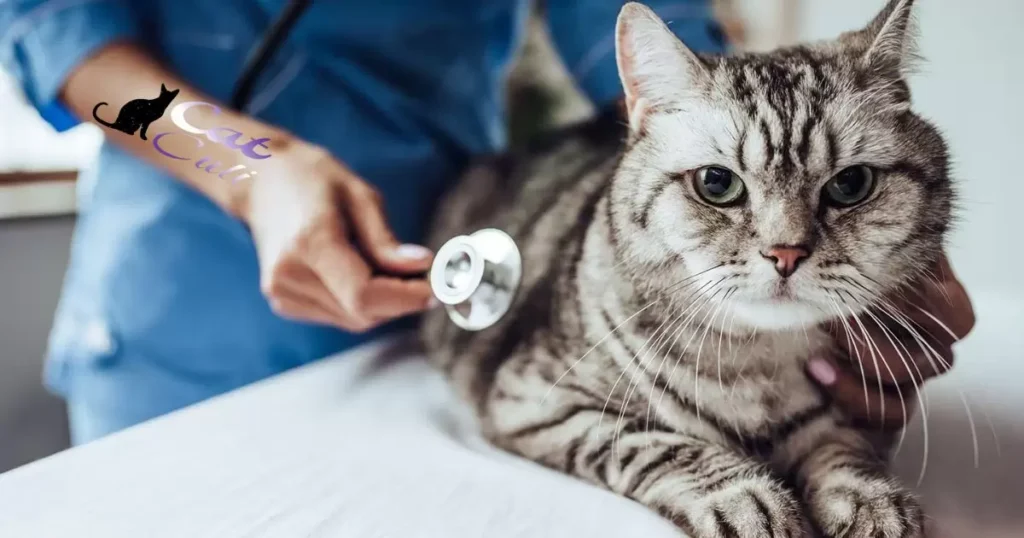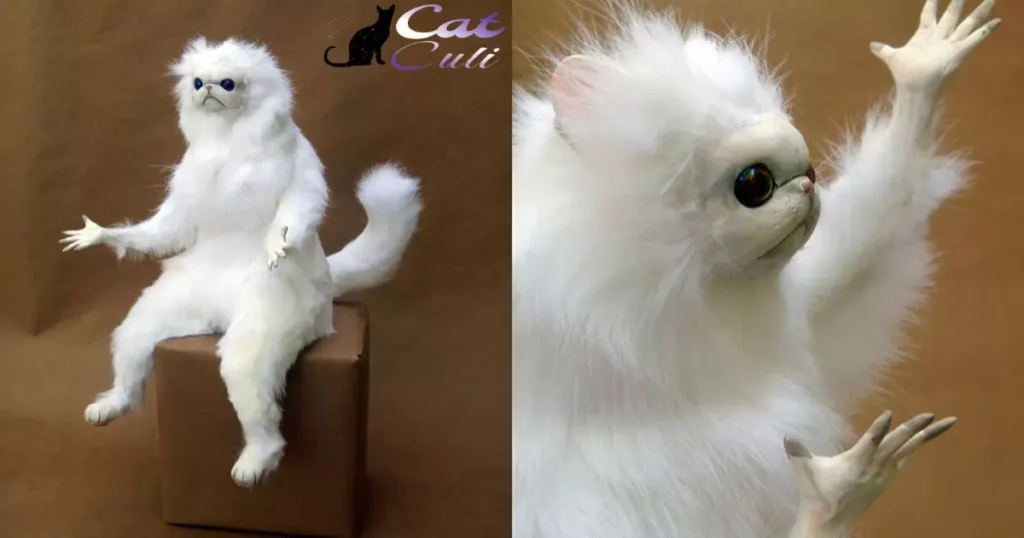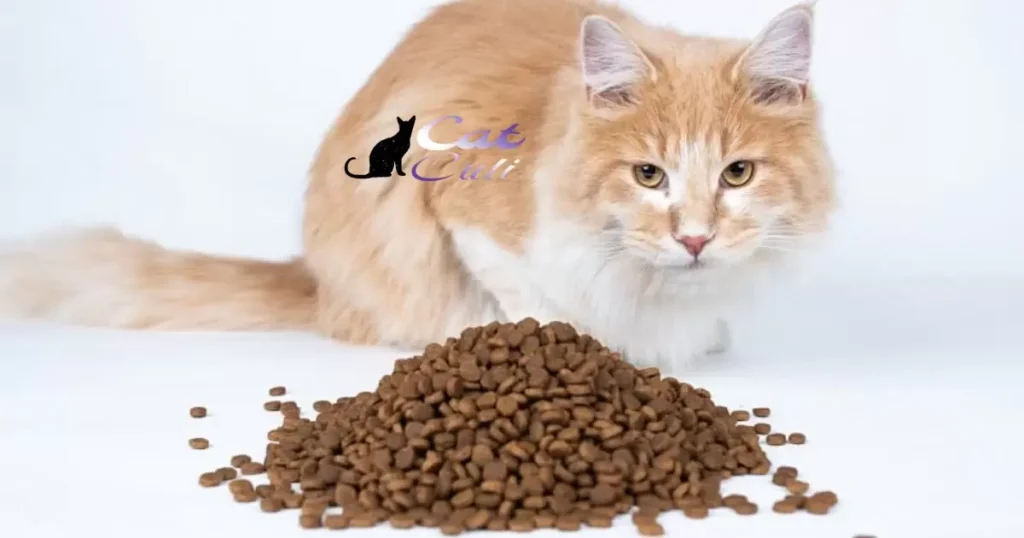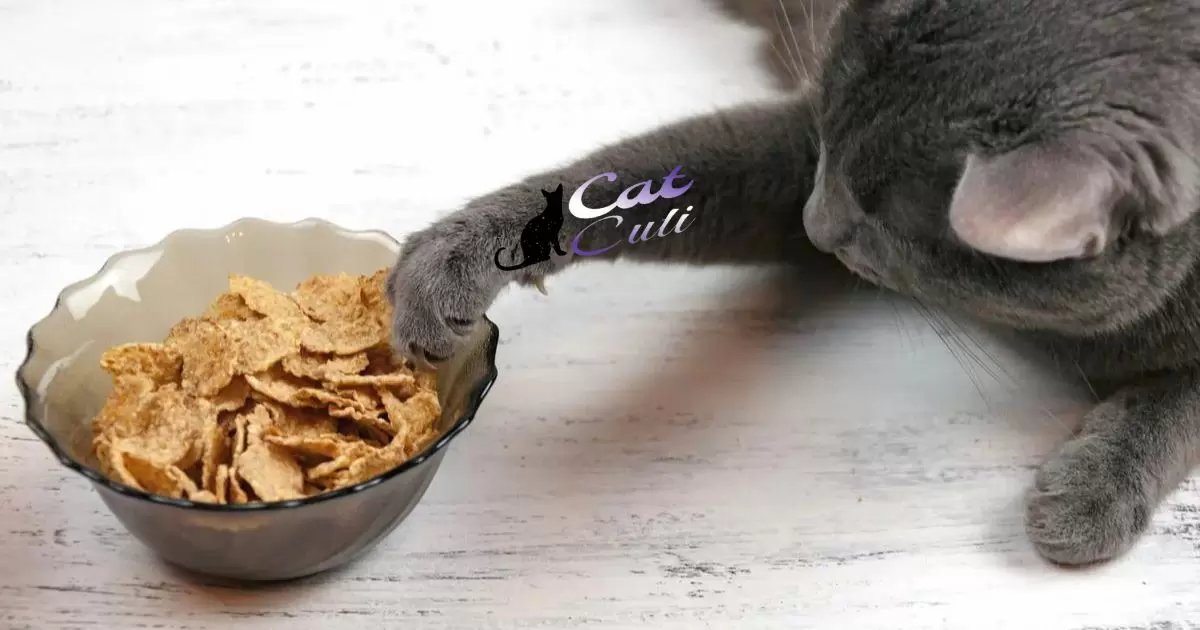Cats digest food relatively quickly, usually within 12 to 24 hours. The process starts in their mouth, where they chew and swallow food. In the stomach, digestive juices break down the food further. Afterward, it moves to the small intestine, where nutrients are absorbed, and waste is eliminated through the large intestine.
Ever wondered, How quickly do cats digest food? Picture this: within just a day, your feline friend’s meal embarks on a rapid journey through their digestive system. From the moment they take a bite, a clock starts ticking, and in a mere 12 to 24 hours, what they eat transforms into vital nutrients or waste.
Within 12 to 24 hours, a cat’s meal navigates through their system, breaking down for nutrients and waste elimination. Understanding this process aids in caring for your feline companion’s well-being. Stay with us to uncover more intriguing insights about your cat’s digestion.
Good Digestion Is One Of The Keys To Excellent Health
Excellent health hinges on good digestion. When your body efficiently breaks down food, it absorbs essential nutrients, fueling overall well-being. A balanced diet, filled with fibre and nutrients, supports smooth digestion, ensuring your body functions optimally. Healthy digestion means a happier, healthier you.
Digestion plays a pivotal role in maintaining top-notch health. It’s the process by which your body extracts nutrients from food, providing energy and supporting various bodily functions. Embracing habits like staying hydrated, eating mindfully, and incorporating probiotics can foster good digestion, laying the foundation for excellent health and vitality.
How Long Does Digestion Take In Cats?
In cats, the question of How Long Does A Cat Take To Digest Food finds an answer within 12 to 24 hours. Once food enters a cat’s mouth, the digestive journey commences. Their stomach’s digestive juices break down food, while in the small intestine, nutrient absorption occurs.
This rapid process ensures that cats efficiently extract nutrients from their food and expel waste promptly, aiding their overall health and well-being. Understanding this swift digestion in cats helps owners in providing appropriate care and monitoring their pet’s digestive health.
What Causes Digestion Problems In Cats?
- Dietary Issues: Sudden changes or inappropriate food choices can upset a cat’s digestive system.
- Food Allergies or Sensitivities: Certain ingredients may trigger allergic reactions or sensitivities leading to digestive problems.
- Ingestion of Foreign Objects: Cats are curious, and consuming non-food items can cause blockages or irritation in their digestive tract.
- Bacterial or Viral Infections: Infections like gastroenteritis can disrupt normal digestion in cats.
- Chronic Health Conditions: Conditions such as pancreatitis or inflammatory bowel disease may hinder proper digestion.
- Stress or Anxiety: Emotional stress can impact a cat’s digestion, leading to problems like diarrhea or constipation.
- Poor Eating Habits: Eating too quickly or overeating can cause digestive issues in cats.
- Age-related Factors: Senior cats may experience decreased digestive efficiency or develop conditions affecting digestion.
How Often Should You Feed Your Cat?
Feeding your cat depends on their age and habits. Adult cats usually eat two meals a day, while kittens might need more frequent feeding, around three to four times daily. It’s essential to maintain a consistent feeding schedule to keep your cat healthy and satisfied.
Always check with your vet to determine the ideal feeding routine for your furry friend based on their specific needs.Some cats prefer free-feeding, where dry food is available throughout the day. Others thrive on a scheduled meal plan.
Understanding your cat’s preferences helps establish the best feeding routine. Monitoring their weight and overall health is crucial in adjusting feeding frequency, ensuring your cat gets the right amount of nourishment.
Signs Of Cat Digestive Problems

Recognizing signs of cat digestive problems is crucial for their health. Watch for vomiting, diarrhea, or constipation, indicating potential issues. Changes in appetite or weight loss can also signal digestive troubles, urging timely veterinary attention.
Keeping an eye on these symptoms ensures early detection and effective treatment, ensuring your cat stays healthy and happy.Observing your cat’s behaviour helps identify digestive problems early.
Look for signs like decreased activity, lethargy, or discomfort after eating. Irregular litter box habits or excessive grooming might also point to underlying digestive issues. Promptly addressing these signs ensures proper care and a swift resolution for your cat’s digestive well-being.
What Should Cats Eat?
Cats thrive on a diet rich in animal-based proteins. Their meals should primarily consist of high-quality cat food that includes meat, poultry, or fish. Providing a balanced diet ensures they get essential nutrients like taurine, crucial for their overall health.
Avoid feeding cats human food, especially items like chocolate, onions, and grapes, which can be toxic to them. Remember, a consistent and appropriate diet, along with fresh water, contributes to your cat’s well-being and longevity.
How To Support Your Cat’s Digestion
To aid your cat’s digestion, offer high-quality food rich in nutrients. Ensure meals are served at regular times to maintain a consistent digestive routine. Incorporate gradual diet changes to prevent upsetting their stomach.
Hydration matters provide access to fresh water to facilitate digestion. Also, encourage exercise to keep their digestive system active. Consulting a vet for guidance on specific dietary needs is crucial for supporting your cat’s digestive health.
Discover The Benefits Of Friendly Bacteria
- Friendly bacteria, known as probiotics, support digestive health by maintaining a balanced gut flora.
- They aid in breaking down food, absorbing nutrients, and supporting the immune system.
- Probiotics can alleviate digestive issues like diarrhea and may enhance overall well-being.
- Incorporating probiotic-rich foods or supplements can promote a healthy gut environment.
- These beneficial bacteria play a vital role in supporting gut health and improving digestion.
The Digestive System Of A Cat
A cat’s digestive system efficiently processes food. When a cat eats, its teeth chew the food, aiding the initial breakdown. From there, the food travels to the stomach, where digestive juices further break it down. The small intestine then absorbs nutrients, while the large intestine deals with waste. This system helps maintain a cat’s health and energy.
Understanding a cat’s digestive system is vital for their care. It ensures proper nutrition and helps identify any digestive issues. By monitoring their diet and observing their digestion, owners can ensure their cat stays healthy and active.
Did Your Cat Eat Something Weird?

Cats tend to explore and occasionally nibble on odd items. If you suspect your feline friend has eaten something peculiar, monitor their behaviour for any signs of distress. Look out for vomiting, diarrhoea, or unusual lethargy. Contact your vet promptly for advice if you notice any concerning symptoms.
Keep an eye on your curious cat to ensure their safety and well-being.Did your cat eat something weird? Cats are notorious for their curious nature, often nibbling on odd objects. If your furry friend ingests something unusual, watch out for signs like vomiting, diarrhoea, or lethargy.
Monitoring their behaviour and seeking vet advice promptly can ensure your cat’s well-being after an unexpected snack. Keep an eye on your curious companion and their quirky eating habits to keep them healthy and safe.
Cat Digestive System Step By Step
| Step | Description |
| 1. Ingestion | Food enters through the mouth, where it’s chewed and swallowed. |
| 2. Stomach Processing | Digestive juices in the stomach further break down the food. |
| 3. Nutrient Absorption | In the small intestine, nutrients are absorbed into the bloodstream. |
| 4. Waste Elimination | Waste moves to the large intestine for further processing and elimination. |
| 5. Defecation | The leftover waste is expelled through the rectum and out of the body as faeces. |
Why Do Dogs Eat Poop And Other Gross Stuff?
Dogs eat poop and other gross things because of their natural instincts. They might do it out of curiosity, boredom, or even to seek attention. Dogs explore the world through their mouths, and sometimes they mistake faeces or other odd items for food, which could be due to dietary deficiencies or simply habit.
This behaviour, known as coprophagia, is common in dogs and has various reasons. It could stem from their evolutionary past when scavenging for food was necessary for survival.
Some dogs might eat poop to clean their surroundings or because they find the smell appealing. Understanding these reasons helps owners address this behaviour and find ways to discourage it for their pet’s health.
Why Dogs Eat Gross Stuff
Dogs eat gross stuff for various reasons. One main reason is their scavenger ancestry, making them attracted to smells that humans find repulsive. Dogs explore the world through their mouths, leading them to taste things we might consider disgusting.
This behaviour can also stem from boredom or curiosity, prompting them to sample items we’d rather they avoid.Their curious nature and evolutionary instincts drive dogs to consume things that make us cringe.
They may find pleasure or fascination in exploring and tasting what we perceive as repulsive, driven by their scavenger heritage and a keen sense of investigation. Understanding this behaviour helps us keep a closer eye on what our furry friends might be tempted to snack on!
Why Do Pooches Eat Poop?
Dogs might eat poop due to various reasons. One explanation is that they could be lacking certain nutrients in their diet, leading them to seek those nutrients in faeces. Puppies may learn this behaviour from their mother or out of curiosity. Some experts suggest it might be a remnant of their ancestral scavenging instincts.
Another reason could be related to their environment. Boredom or stress might drive dogs to eat poop as a way to seek attention or alleviate their anxiety. Some medical conditions could prompt this behaviour, signaling an underlying health issue that needs attention from a veterinarian.
How To Keep Your Cat’s Digestive System Healthy
Keeping your cat’s digestive system healthy is crucial. Firstly, ensure a balanced diet rich in high-quality proteins and fiber. Regular meals in proper portions prevent digestive issues. Additionally, provide clean water to keep your cat hydrated, aiding digestion.
Regular exercise is vital for your cat’s digestive health. Encourage playtime to keep them active and maintain a healthy weight. Finally, schedule regular vet check-ups to detect and address any potential digestive problems early, ensuring your cat stays healthy and happy.
The 7 Important Parts Of The Cat’s Digestive System
| Part of Digestive System | Description |
| Mouth | Begins the digestion process with chewing and saliva |
| Oesophagus | Transports food from the mouth to the stomach |
| Stomach | Breaks down food with acids and enzymes |
| Small Intestine | Absorbs nutrients from digested food |
| Large Intestine | Absorbs water and forms feces |
| Liver | Produces bile, aiding in fat digestion |
| Pancreas | Secretes digestive enzymes |
How Long Does It Take For A Kitten To Digest Food And Poop
Kittens digest food faster than adult cats, usually within 3 to 6 hours. After eating, the food moves swiftly through their system, getting broken down for nutrients in their stomach and small intestine.
Within hours, they’ll likely poop, typically within 30 minutes to an hour after a meal. This quick digestion and elimination process in kittens is a sign of their healthy metabolism.Their tiny digestive systems work efficiently, swiftly processing food to keep up with their growth. Kittens often poop multiple times a day, showcasing their speedy digestion.
As they mature, their digestion slows down, aligning more with an adult cat’s digestive pace. Understanding these timelines helps in ensuring your kitten’s health and monitoring their development.
How Long Does It Take A Cat To Digest Wet Food

Cats typically digest wet food fairly quickly, usually within 12 to 24 hours. Once consumed, the digestive process swiftly commences in their system. Enzymes in their stomach work actively to break down the nutrients in the wet food, aiding in absorption in the small intestine.
The undigested remnants then pass through the large intestine and are eliminated within a day, showcasing the efficient digestion of wet food in feline companions.Understanding how long it takes a cat to digest wet food is essential for proper feeding schedules and maintaining their health.
The rapid digestion of wet food ensures that cats derive the necessary nutrients relatively swiftly, contributing to their overall well-being. By appreciating this digestion timeline, cat owners can tailor feeding routines and provide the best nourishment for their furry friends.
How Long Does It Take For A Cat To Pass An Object
When a cat swallows something, it usually takes around 24 to 48 hours for the object to pass through their digestive system. During this time, the object moves through the stomach and intestines, propelled by the cat’s digestive processes. Most often, smaller items will pass without causing any issues.
Larger or sharper objects might cause blockages or injuries. In such cases, it’s crucial to monitor your cat for signs of distress like vomiting, lack of appetite, or difficulty passing stool. If you notice these symptoms, contacting a vet promptly is essential to ensure your cat’s health and well-being.
How Long Does It Take For A Cat To Digest Water
Cats typically digest water quite rapidly. Once consumed, water swiftly travels through their digestive tract, with absorption starting almost immediately in the stomach. From there, it moves to the small intestine, where the body actively absorbs the water, hydrating the cat within a matter of hours.
The time it takes for a cat to digest water varies but generally falls within a few hours. Unlike solid food, water doesn’t require extensive digestion, allowing it to pass through the system relatively quickly. Cats efficiently process and absorb water, ensuring they stay adequately hydrated for their well-being.
How Is Cat Digestion Different From Humans?
| Aspect | Cat Digestion | Human Digestion |
| Dental Structure | Sharp teeth for tearing and shredding | Different types of teeth for grinding and chewing |
| Dietary Needs | Obligate carnivores, require animal protein | Omnivores, can digest a variety of foods including plant and animal-based |
| Digestive Enzymes | Higher amounts of proteases for meat digestion | Varied enzymes to break down carbohydrates, proteins, and fats |
| Digestive Tract | Shorter digestive tract | Longer digestive tract |
| Absorption of Nutrients | Quick absorption of protein and fat | Gradual absorption of nutrients across a longer tract |
How Long Does It Take For A Cat To Digest A Pill
When a cat swallows a pill, it typically takes around 20 to 30 minutes for the pill to move from the mouth to the stomach. Once in the stomach, the digestive process begins, usually lasting about 45 minutes to 2 hours before the pill breaks down. The exact digestion time can vary based on factors like the type of pill and the cat’s individual digestive system.
It’s important to note that some medications may require specific formulations or coatings for better absorption and effectiveness. To ensure the pill is properly digested, it’s recommended to consult a veterinarian for guidance on administering medication to your cat.
How Long Does It Take For A Cat To Poop Something Out
When a cat ingests something, it typically takes around 12 to 24 hours to pass through their digestive system and come out as poop. The process starts with food entering the mouth, moving through the stomach where digestion begins, and then travels to the intestines for absorption.
What’s undigested or unabsorbed exists as waste in the form of poop.If a cat swallows something unusual or indigestible, like a foreign object or hairball, the time it takes to pass it through may vary.
Factors like the size of the object and the cat’s digestive health can influence how long it stays in their system before being expelled through the poop. Regular monitoring and consulting a vet are crucial if there are concerns about something a cat has ingested.
FAQ’s
How long does it take cats to poop out food?
Cats typically pass food in 12-24 hours, but foreign objects or health issues may alter this.
How fast does a cat’s stomach empty?
A cat’s stomach empties in 12-24 hours, varying with diet, health, and any ingested items.
Do cats digest wet food faster?
Yes, cats often digest wet food faster due to its higher moisture content aiding digestion.
Do cats digest faster than humans?
Yes, cats digest faster; their shorter digestive tracts process food in about 12 hours, quicker than humans.
Conclusion
Understanding How Quickly Do Cats Digest Food? unveils the remarkable efficiency of a feline’s digestive system. In a mere 12 to 24 hours, the journey from ingestion to elimination is completed. This swift process starts with chewing and swallowing, followed by breakdown in the stomach and absorption in the intestines.
Ultimately, comprehending How Quickly Do Cats Digest Food? aids in responsible pet care. Monitoring their diet and ensuring it aligns with their digestive pace ensures they receive optimal nutrition. This insight into their digestion offers valuable knowledge, nurturing a healthier and happier life for our beloved feline companions.








